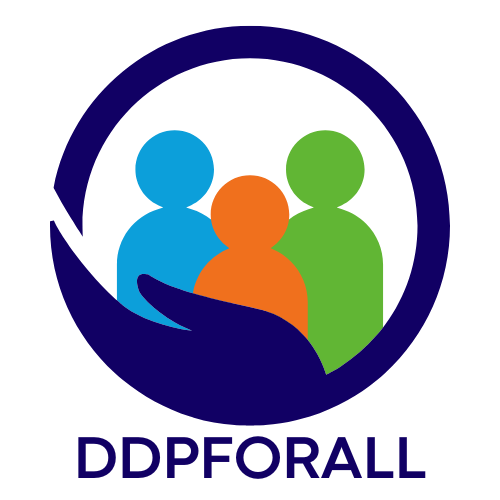Table of Contents
ToggleIn a world where emojis often replace words and TikTok dances steal the spotlight, the importance of reading and literacy can’t be overstated. California’s new online reading and literacy added authorization program is here to save the day—no cape required. This initiative empowers educators to enhance their skills and foster a love for reading among students, ensuring that future generations can navigate the vast ocean of information with ease.
Understanding Reading and Literacy Added Authorization
Reading and Literacy Added Authorization in California enhances educators’ skills. This authorization allows teachers to focus on effective reading strategies and promote a culture of literacy. Educators equipped with this authorization can better address diverse student needs. The training emphasizes the importance of reading instruction in various formats, including digital texts.
Online courses streamline the process for educators seeking this added authorization. They offer flexibility, enabling teachers to learn at their own pace while balancing their responsibilities. This format also ensures accessibility to resources that fit modern educational environments.
Programs providing Reading and Literacy Added Authorization include coursework essential for thorough preparation. Educators will explore methods to engage students actively in reading activities. They will learn about assessment techniques to monitor student progress effectively. Instruction will cover strategies for integrating technology into literacy instruction, aligning with today’s digital landscape.
Success in this initiative contributes significantly to student achievement. Studies indicate that effective literacy instruction can lead to improved academic performance and lifelong reading habits. Investing in reading and literacy skills supports students in navigating complex information in their personal and professional lives.
Through the Reading and Literacy Added Authorization, California aims to cultivate a generation of proficient readers. This commitment to literacy aligns with the broader goal of fostering critical thinking and comprehension skills. Empowered educators will play a pivotal role in developing these essential abilities among their students.
Benefits of Online Learning in California

Online learning in California offers significant advantages for educators and students. Flexible schedules allow teachers to complete courses at their convenience.
Flexibility and Accessibility
Flexibility in online courses accommodates diverse lifestyles. Educators manage job responsibilities while engaging in professional development. Accessibility to coursework ensures that geographical barriers do not limit participation.
Students benefit from various formats, whether synchronous or asynchronous. Those in remote areas gain access to high-quality resources without commuting. Educators consistently find it easier to integrate online learning into their routines.
Enhanced Learning Resources
Enhanced resources provide educators with innovative materials for instruction. Online platforms host a wealth of digital texts and interactive tools.
Courses often include access to contemporary research and best practices in literacy. These resources enable teachers to tailor instructional strategies to meet individual student needs.
Additionally, collaboration with peers occurs easily through online forums. Educators exchange ideas and strategies, fostering a supportive community. Training in technology integration equips teachers with the skills necessary to create engaging learning environments.
Requirements for Authorization in California
California’s Reading and Literacy Added Authorization program includes specific criteria that educators must fulfill. These criteria ensure that educators are adequately prepared to enhance literacy among students effectively.
Educational Background
Candidates must hold a valid teaching credential in California. This credential serves as the foundation for pursuing the added authorization. Additionally, educators need to demonstrate completion of coursework focused on reading instruction. Coursework often encompasses topics such as literacy development and phonics. A focus on diverse student needs is crucial, allowing educators to address the varying backgrounds of their classrooms. Formal education in these areas forms the basis for implementing effective reading strategies.
Examination and Assessments
Passing a state-mandated examination is necessary for securing the authorization. This examination evaluates knowledge of literacy methods and best practices. Educators must also complete performance assessments that showcase their ability to engage students in reading activities. These assessments highlight practical application of learned techniques in real classroom settings. Familiarity with technology integration in literacy instruction is assessed, ensuring educators adapt to modern learning environments. Successful completion of these evaluations demonstrates readiness to foster literacy among students effectively.
Online Programs for Reading and Literacy Authorization
Online programs for reading and literacy authorization play a crucial role in enhancing educators’ skills. These courses, offered through accredited institutions, provide flexible learning opportunities tailored to modern teaching needs.
Accredited Institutions
California boasts several accredited institutions that offer online reading and literacy authorization programs. Each institution complies with state standards and contributes to high-quality educator preparation. Notable options include California State University and the University of California, which feature robust coursework and experienced faculty. By engaging with these institutions, educators gain access to essential resources and support networks. Enrollment procedures prioritize ease of access, ensuring educators can begin their professional development journey efficiently.
Program Features and Curriculum
Program features and curricula are designed to provide comprehensive training in reading and literacy. Core elements encompass literacy development, assessment strategies, and integration of technology in instruction. Educators participate in interactive courses focusing on diverse literacy methods, reflecting current educational practices. Online learning platforms facilitate collaboration among participants, fostering a vibrant learning community. Assessments are integral, allowing educators to demonstrate and refine their skills in real-world scenarios. Acquiring this authorization leads to enhanced instructional strategies and improved student engagement in reading activities.
California’s online Reading and Literacy Added Authorization program is a pivotal step towards enhancing literacy in today’s digital landscape. By equipping educators with essential skills and strategies, it fosters a culture of reading that benefits students across diverse backgrounds. The program’s focus on technology integration and flexible learning ensures that teachers can adapt to modern educational demands while supporting their professional growth.
As educators embrace this initiative, they’ll be better prepared to inspire students and cultivate lifelong reading habits. The commitment to literacy not only improves academic performance but also empowers students to navigate the complexities of information in their personal and professional lives. This initiative promises to shape a brighter future for literacy in California.







